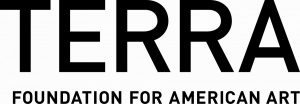Following the international conference in Madrid, the Cold Atlantic Doctoral Seminar took place on September 8 and 9 2016 at the University of Barcelona, with the participation of 19 PhD students from universities in Europe and the Americas. Professors and researchers specialized in Cold War’s artistic and cultural history were also invited to contribute to these two days of presentations, debates and lectures. Passing in review this positive experience, we propose a brief report on the seminar’s objectives and processes.
The Cold Atlantic seminar aimed to offer a platform for the presentation and discussion on ongoing PhD researches, in a context designed to foster collective work and reflection on a wide range of cross-cutting themes. The theses of the participants all focused on the Cold War period, from a large variety of geographical, thematic and methodological perspectives.
The sessions were open to the public; however, they were configured like workshops or working groups rather than lecture courses. While communications had previously circulated among the participants, each presentation was followed by a single response or comment and a time for questions, in order to encourage the debate. Each panel (including 4 or 5 papers and answers) also included an intervention (by Serge Guilbaut, Jonathan Harris, María Iñigo and Mark Nash) meant to synthesize previously addressed issues and open new lines of reflection based on these presentations.
The seminar highlighted the vitality of studies on the Cold War period and their attention to new perspectives and crossings – disciplinary and methodological, as well as spatial and political. Through case studies, as well as theoretical analysis, communications addressed a wide range of issues, emphasizing the intertwining of cultural and political practices during the Cold War. Let’s mention here some of the issues addressed throughout the seminar: the relations between visual production and political activism, the use of new media and cinema, publications as a politicized vehicle for ideas and aesthetics, the role of art criticism, the trajectories of artists and cultural agents in exile, the role of social movements, the issue of torture and its repercussions, nuclear and space conflict, religion as a motor of production and circulation of art, and the role of art exhibitions and biennials in the diffusion of new aesthetic and political models.
The presentations covered a broad territorial spectrum, including not only those areas directly located within the two main spheres of influence (United States and Soviet Union), but also other national or regional realities, like those connected with the non-aligned movement, processes for decolonization and national independence, or dictatorships. Many of them adopted a transnational approach, paying particular attention to the connections and zones of contact between different regions and nations.
Keynotes by Mark Nash (Things Fall Apart) and Serge Guilbaut (Out of Fashion: Foreign Women Artists in Paris in the 1950s) provided further discussion topics, while Jonathan Harris’ final methodological remarks reaffirmed the singularity and importance of doctoral research and the process of writing. Participants were also offered a guided tour of MACBA’s ongoing exhibitions and collection, with particular focus on the 20th century’s second half.
Fuelled by the previous inputs of the conference in Madrid, most of the seminar’s participants attended, and two days of debates, the seminar’s four thematic sessions and discussions were very productive, inviting to continue this experience and reproduce it periodically.
While conferences and symposiums do not usually leave much time to collective debates and reflections, the Cold Atlantic seminar was a pedagogical proposal addressed in first place to its participants, conceived as two days of collective work that strongly relied on people’s ability to engage into dialogue and articulate critical responses. More than an exceptional “experiment”, the seminar’s positive experience should encourage us to repeat this kind of process of collective learning and production of knowledge in the academic field, offering more space to present and debate on ongoing ideas and shared work.
(by Juliane Debeusscher)
List of participants
PhD Researchers: Francisca Castillo, Paloma Checa-Gismero, Diana Cuéllar Ledesma, Juliane Debeusscher, Elvis Fuentes, Aimé Iglesias Lukin, Mary Ikoniadou, Cara Jordan, Wiktor Komorowski, Karla Lebhaft, Lola Lorant, Alba Martín, Charlotte Matter, Antonella Medici, Chanon Kenji Praepipatmongkol, Erin Reitz, Pablo Santa Olalla, Isabel Story and Branka Vujanovic.
Respondents: Jonathan Harris, Serge Guilbaut, María Íñigo Clavo and Mark Nash.
Chairs: Paula Barreiro López, Olga Fernández López, Fabiola Martínez Rodríguez and Juan Albarrán.
Keynote lectures: Mark Nash and Serge Guilbaut.
This academic event was associated with the international conference Cold Atlantic. Cultural War, Dissident Artistic Practices, Networks and Contact Zones at the Time of the Iron Curtain (Museo Reina Sofía, Madrid, 5-7 September 2016).
Organization: Universitat de Barcelona, Universidad de Saint-Louis (Madrid), Universidad Autónoma de Madrid y Museo Reina Sofía.
Within the framework of the research project Decentralised Modernities: Art, Politics and Counterculture in the Transatlantic Axis during the Cold War (HAR2014-53834-P).
With the generous suppor of: Terra Foundation for American Art, Vicerectorat de Relacions Institucionals i Cultura de la Universitat de Barcelona, Facultat de Geografia i Història de la Universitat de Barcelona and MACBA.


![]()


![]()
![]()
![]()
